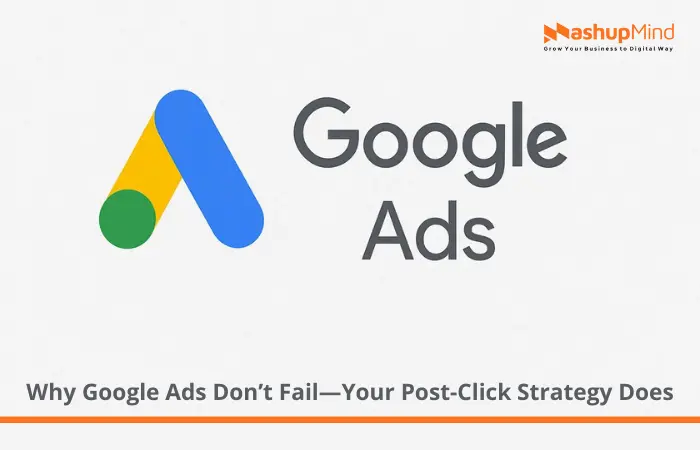When people turn to AI for health guidance, they want clarity and confidence. Yet AI remains a tool; it doesn’t replace real medical professionals.
But think of ChatGPT; it has around 800 million weekly and 122.58 million daily users. Many use this AI tool to seek medical advice, including healthcare professionals.
However, we need to treat AI suggestions as conversation starters, not diagnoses. Putting human judgment and care at the forefront matters most.
Learning to use AI responsibly ensures that its potential benefits don’t lead us astray. By combining AI with common sense, credible sources, and professional insight, we give ourselves the best chance at staying informed.
This article will guide you through thoughtful steps so you can benefit from AI’s strengths while protecting your well‑being.
Firstly, Do You Understand What AI Is and What It Isn’t?
AI can scan huge amounts of medical papers, web articles, and guidelines in seconds. It highlights patterns, summarizes research, and shares emerging consensus quickly. These abilities can boost your awareness and help you explore topics before talking with a doctor.
But AI doesn’t necessarily understand you as a real person. It doesn’t listen to your nuanced history or detect hidden health clues.
AI also lacks emotional understanding and can’t build a rapport with you. You must always cross-check AI‑generated info with trusted professionals and your own experiences.
Check AI Information Against Credible Sources
Did you know that more than 60 percent of AI chatbot responses to human queries are wrong? Hence, when AI tells you something important about health, don’t assume it’s accurate right away.
First, see if reputable organizations like the WHO, US CDC, or major medical schools back those statements. Next, look for peer‑reviewed studies or systematic reviews in medical journals. Those carry more weight than random websites.
If AI cites a source, look it up independently. Remember that AI sometimes mistakes outdated or mistaken facts as current.
Respect what your doctor or pharmacist tells you. Their personal knowledge often fills gaps AI can’t cover.
Cross-Checking with Recent News and Developments
Health advice evolves quickly when new studies or safety concerns emerge. Staying current matters more than ever. When you consult AI, take a moment to cross‑check with recent news and developments.
Look at health journalism from outlets you trust, like major daily newspapers or scientific magazines. Read at least two or three of the most recent articles on your topic. Doing this ensures that nothing important slipped past AI’s last update.
Here’s another example: several Depo‑Provera lawsuits recently hit headlines. According to TorHoerman Law, women across the country have filed claims for Depo‑Provera side effects, such as bone density. Many plaintiffs cite serious risks they say they didn’t fully understand.
Now, assume that someone wants to file a claim for Depo-Provera side effects. Or perhaps they want to know if the medication is safe to use. For that, they might consider asking ChatGPT for the latest information on the lawsuits or the medication itself.
The AI might not be able to retrieve any recent news or developments that happened that day or week. Hence, cross-checking the AI-generated information with more credible news or legal sources is important here.
Recognize AI’s Data Limitations
AI models learn from existing text. If new research hasn’t entered their training data, AI may miss it entirely. That means newer or recently published studies, safety alerts, or guideline changes might be invisible to AI. AI can also repeat biases found in its sources.
You can’t assume AI presents the full picture. When AI gives advice about drugs, therapies, or conditions, ask whether it mentions unknown side effects or conflicts in evidence. If you notice omissions, do your own digging using trusted databases or medical news.
Of course, updates are being made to help these AI tools, like ChatGPT, retrieve up-to-date information. However, the data limitations will still exist to some extent.
Do You Know When to Ask a Medical Professional for Help?
AI can help you clarify symptoms, understand conditions, and weigh treatment options. You can use it to prepare questions for your doctor. AI may help you phrase concerns clearly before an appointment.
But AI can’t listen, ask targeted follow‑ups based on tone, or detect subtle physical signs. It can’t adjust advice when your health history matters most.
You should always consult your provider when experiencing new symptoms, needing a diagnosis, or managing conditions. Get a second or even third opinion on any serious or irreversible intervention.
Use Clear, Personal Inputs for AI
Vague inputs like “Do I have a fever?” won’t yield precise responses. Instead, specify your age, weight, symptoms, and duration.
For example: “I’m a 45‑year‑old who’s had a mild fever, cough, and fatigue for five days.” The more specific your questions, the more helpful and tailored AI suggestions can be.
Mention whether you have already taken medication or if you have preexisting conditions. That way, AI can reference those factors in its answer. When you introduce relevant details, AI provides better context and less generic responses.
Assess AI’s Confidence
Often, AI gives disclaimers like “This is not medical advice.” Notice when it says “could be” or “possible cause.” That signals uncertainty. If it uses strong words like “always” or “proven,” that might overstate findings.
Use your judgment: Does AI sound cautious or overly assertive?
When you spot uncertain language, take extra steps. Consult more sources, ask questions during a telehealth visit, or make a call to your clinic. Better safe than sorry when ambiguity arises.
How Do You Preserve Your Privacy When Using AI?
Never share your full medical record, insurance details, or personal identifiers with AI. Input symptoms only at a basic, anonymized level.
That helps you remain cautious around data collection. Companies may store your inputs even if they don’t share them.
You are free to ask AI about a generic “a 50‑year‑old male with chest pain.” But avoid sharing personal ID numbers, full medication lists, or exact history that might compromise confidentiality.
Keep Track of Your Sources
Create a simple log or folder where you note:
- The date you asked AI
- What prompt did you use
- What suggestions idid t give you
- Any references or links it provided
Also include sources you checked manually, like news articles, journal papers, or doctors’ notes. This log helps you track changing advice and your own decision‑making process. It can help you reflect later and spot differences over time.
Evaluate AI‑Suggested Treatments Carefully
If AI suggests a treatment based on symptom descriptions, don’t follow it automatically. Check whether the guidelines from the authorities support the treatment for your age or condition. Use reputable medical websites or official recommendations from health boards.
If the treatment involves drugs, verify whether the dosage matches your demographic. Ask your pharmacist or primary care provider whether it fits with other medications you take. Getting professional confirmation keeps you safe.
Can You Recognize When the AI Is Out of Date?
The world of medicine changes fast. Vaccine schedules, drug approvals, and treatment protocols shift regularly.
AI trained even a year ago might miss major changes. For example, new vaccine guidance or drug warnings often appear quickly in official sources.
If you need the latest info, check where AI likely lags behind. Consult trusted websites like the FDA site, government health portals, or top‑tier medical institutions. Doing so fills AI’s blind spots and ensures you stay current.
Stay Mindful About Self‑Diagnosis
AI sometimes tries to match symptom lists to conditions. While this seems clever, it risks confirming serious issues unnecessarily. Cyberchondria, anxiety caused by overdiagnosing yourself online, happens easily through symptom checkers. If AI suggests something alarming, pause.
Instead of panicking, treat that suggestion as a topic to discuss with your doctor. Don’t jump to conclusions or order prescription drugs based on AI opinion. Speak to a certified medical professional.
Use AI Tools Designed for Health
Several AI tools specialize in medical advice and follow regulatory standards. These tools often include disclaimers, updates, or oversight by clinicians. They may ask you follow‑up questions if your symptoms sound serious.
If you choose a general chatbot, check whether it links to guidelines, cites sources, or updates regularly. Clinical‑grade AI platforms may carry extra value when you need trustworthy insights.
Practice Shared Decision‑Making
Whenever possible, use AI to prepare for conversations with healthcare providers. You can ask it to help you frame questions like “Could vaccine side effects include joint pain?” or “What non‑surgical options exist for my condition?” Present those questions during your visit.
Your provider can then walk through possible causes, treatments, and timelines with you. AI has helped you ask better questions, but the final decision happens in collaboration with a real person.
Reflect and Adjust Your Approach
After seeking AI input and consulting professionals, look back and evaluate.
Did AI help you feel more prepared? Did I miss something important? How accurate or misleading were its suggestions?
Use that insight to improve your next interaction. Maybe you need to give more context early on. Maybe you want to check an additional news source. Growing more informed improves both your care and your trust in using AI.
AI offers powerful tools for exploring health and medical topics. It helps us research conditions, generate conversation prompts, and spot emerging news. But we must treat it as a partner, not an authority.
Use AI by providing clear personal context, checking its confidence, and cross-referencing with trusted health and news sources. Track your own history, and always involve healthcare professionals in your decisions. By doing this, you protect both your well‑being and your sense of control.







